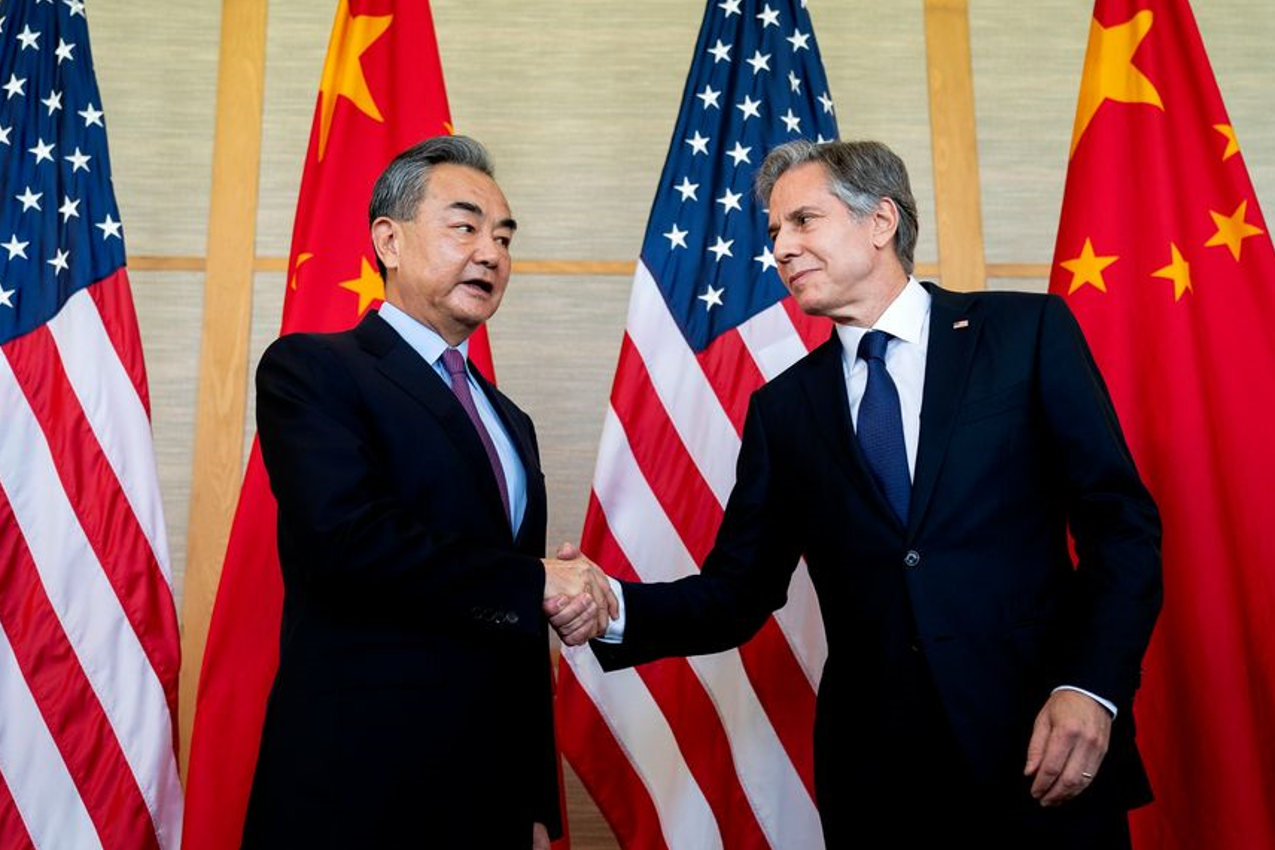Chen Jimin, Guest Researcher, Center for Peace and Development Studies, China Association for International Friendly Contact
Mar 09, 2023
The strategy is based on 20th century thinking in a 21st century environment. It will therefore inevitably run into problems. This design flaw is its Achilles heel: It has improper strategic goals, an imaginary competitor and an ineffective and misguided approach.
Fan Gaoyue, Guest Professor at Sichuan University, Former Chief Specialist at PLA Academy of Military Science
Mar 08, 2023
The European Deterrence Initiative resulted in the Russia-Ukraine conflict eight years after its creation. Will the PDI lead to a U.S.-China or Japan-China conflict — or any other conflict in the days to come? The situation should be watched closely with high vigilance.
Chen Jimin, Guest Researcher, Center for Peace and Development Studies, China Association for International Friendly Contact
Feb 07, 2023
The shift has been limited so far, so China need not overreact. It should closely monitor where NATO is heading, however. The best way to deal with it is to run its own affairs well and buttress its ability to rise above external shocks and challenges.
Zhou Xiaoming, Former Deputy Permanent Representative of China’s Mission to the UN Office in Geneva
Feb 07, 2023
America shamelessly uses other countries to further its own agenda, disregarding their needs. It has split the world and kept it in a state of perennial conflict since World War II and is now invoking the nightmarish return of the Cold War.
Richard Javad Heydarian, Professorial Chairholder in Geopolitics, Polytechnic University of the Philippines
Jan 11, 2023
Geopolitical tensions unleashed by the war in Ukraine continue to influence Sino-American relations and the reshaping of state relationships in Southeast Asia.
Richard Javad Heydarian, Professorial Chairholder in Geopolitics, Polytechnic University of the Philippines
Oct 14, 2022
The Phillipines geographic location has long made it a close trading partner to China, but a colonial history with the U.S. has left strong bonds with its century-old ally to this day. Now, as China and the U.S. talk themselves into more hostile territory, how the Philippines will navigate two of its most consequential relationships will be crucial to surviving any sort of escalation.
Zhai Kun, Professor at School of International Studies; Deputy Director of Institute of Area Studies, Peking University
Oct 12, 2022
Three primary U.S. goals have their limitations. While it currently enjoys an internal bipartisan consensus on China, diplomatic and security problems, loopholes and contradictions exist for many countries in the region. The U.S. seeks to adjust the system to its advantage.
Richard Javad Heydarian, Professorial Chairholder in Geopolitics, Polytechnic University of the Philippines
Sep 30, 2022
As a former U.S. colonial subject, the Philippines has retained close cultural and official ties to Washington. The new Philippine president, Ferdinand Marcos Jr., has shown that he intends to deviate from his predecessor’s distancing from the United States by rebuilding relations with the West while simultaneously drawing closer to Asian nations - including China.
Zhou Xiaoming, Former Deputy Permanent Representative of China’s Mission to the UN Office in Geneva
Sep 27, 2022
Washington’s initiatives are being pitched as an “alternative to China,” as they divide developing countries and solidify U.S. control. The IPEF may compete with ASEAN, raising questions about the bloc’s centrality.

Li Yan, Director of President's Office, China Institutes of Contemporary International Relations
Jul 15, 2022
Will the G20 foreign ministers meeting bring China-U.S. ties back on track? Only with continuous improvements in the overall bilateral atmosphere can any consensus on cooperation — and the stability of the world — be effectively guaranteed.
Back to Top

- China-US Focus builds trust and understanding between the U.S. and China through open dialogue among thought leaders.
- Our Offerings
- Topics
- Videos
- Podcasts
- Columnists
- Research Reports
- Focus Digest
- Stay Connected
-
Thanks for signing up!
- Get the latest stories from China-US Focus weekly.